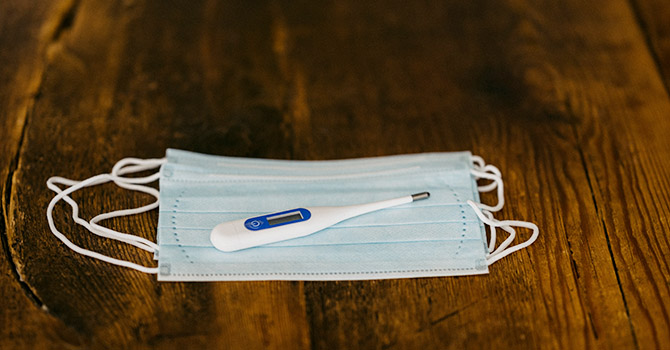Michiganders With COVID-19 Experienced a Double Whammy of Prolonged Illness, Economic Distress

New research from Nancy Fleischer
Associate Professor of Epidemiology
Months after they first experienced COVID-19 symptoms, 1 in 4 Michigan residents with a confirmed case of coronavirus had not fully recovered from the illness, according to a joint study that seeks to document Michiganders' experiences with the novel coronavirus.
And as they battled the debilitating disease, a majority of the study's respondents reported that they or their families experienced loss of employment or reduction in hours worked during the pandemic—nearly 1 in 5 families struggled to pay bills, and 1 in 10 had difficulties getting enough nutritious food.
"This is a devastating illness in terms of the physical, social and economic impact it has on people who have been diagnosed with COVID-19," said lead investigator Nancy Fleischer, associate professor of Epidemiology at the University of Michigan School of Public Health. "While we had an idea of its effects on people, we did not fully understand the extent to which it had affected those diagnosed with the illness."
The Michigan COVID-19 Recovery Surveillance Study, also known as MI CReSS, is a joint effort between researchers at the University of Michigan School of Public Health and the Michigan Department of Health and Human Services.
Researchers examined data from 638 respondents from a representative sample of 2,000 adults in Michigan with COVID-19 onset on or before April 15, 2020. Respondents completed a survey by phone or online about their experiences with COVID-19 and the challenges they faced due to their illness and the pandemic.
Recovery time varied greatly among those who had recovered, ranging from less than one week to 18 weeks, with an average of four weeks of recovery time. About 26% had not yet recovered from COVID-19 to their usual state of health when interviewed two-and-a-half to six months after onset. Long-lingering symptoms included fatigue (50%), shortness of breath (44%) and altered taste and/or smell (18%).
Other key findings:
- Stress levels and mental health worsened for 53% of respondents.
- About 59% made several attempts to get tested.
- Among those who thought they knew the source of coronavirus exposure, half believed they were exposed at work, while a quarter thought they were exposed by a family member.
- About 69% of participants who were employed or self-employed at time of diagnosis had to physically report to work following the "Stay Home, Stay Safe" executive order. Of those, 88% said they were an essential employee.
- About 34% did not take sick leave during their illness but among those who did, 82% had paid sick leave.
The researchers said they will more closely analyze employment data to understand experiences with COVID-19 illness among employed Michiganders. They also will examine the impact of COVID-19 on different groups, including differences by age, sex, race/ethnicity and socioeconomic status.
"Collecting these data is the first step needed to document and quantify the long-term effects of COVID-19," Fleischer said. "We can then use this information to make informed decisions about how to best support Michiganders during the ongoing pandemic. Although COVID-19 affects people differently, it can be a debilitating illness among those who survive. We need to continue to be vigilant with the things we know work—wearing a mask, social distancing, limiting the size of gatherings and frequent hand washing."
In addition to Fleischer, lead investigators included Jana Hirschtick and Andrea Titus of the University of Michigan School of Public Health and Patricia McKane of MDHHS. Funding for the study comes from the University of Michigan Institute for Data Science, the Department of Epidemiology at the University of Michigan School of Public Health, the University of Michigan's Rogel Cancer Center and MDHHS.
- Report: Michigan COVID-19 Recovery Surveillance Study
- Learn more about COVID-19 research at Michigan Public Health.
